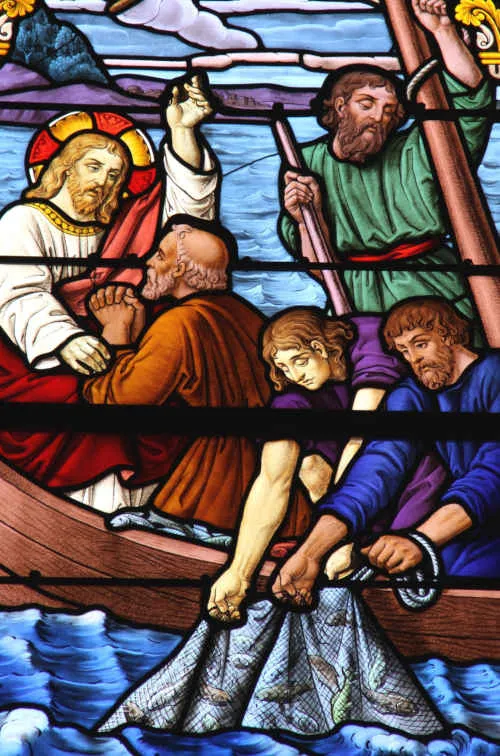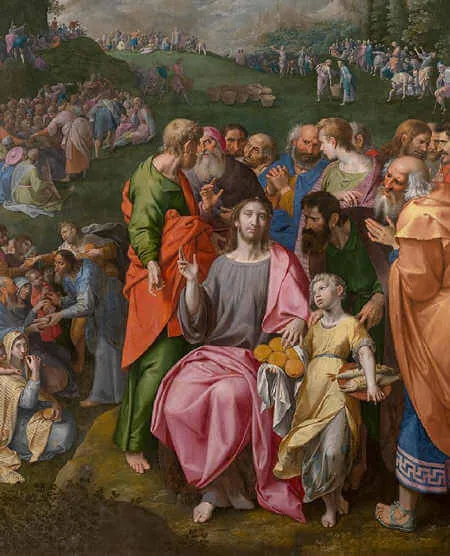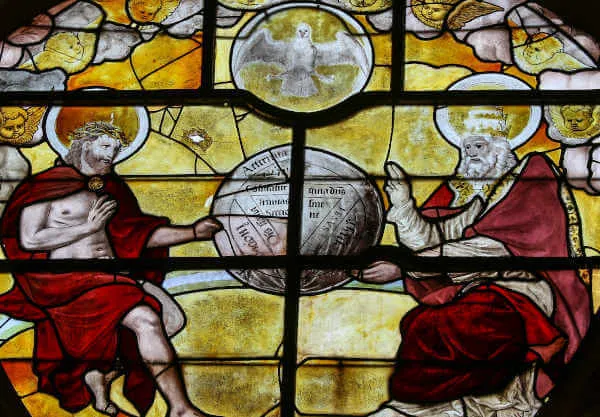John 6:34-35
The Bread of Life
So they said to Jesus, “Sir, give us this bread always.” Jesus said to them, “I am the bread of life; whoever comes to me will never hunger, and whoever believes in me will never thirst.”
Reflection:
Imagine if you were to never grow hungry or never thirst again. On a natural level, this would be an interesting reality. Of course, if you never had physical hunger or thirst, then you may never enjoy the delight of good food and drink. So why would anyone want to lose out on such delights?
Of course, Jesus was not speaking of natural food and drink, He was speaking of supernatural hunger and thirst. And He was not saying that the spiritual food and drink He came to give us would eliminate our ability to delight in spiritual fulfillment. On the contrary, Jesus was saying that the spiritual food and drink He was to provide would result in never-ending fulfillment and satisfaction.
Chapter 6 of John’s Gospel will continue to be read throughout this week, the Third Week of Easter. This chapter presents us with what is traditionally called the “Bread of Life Discourse.” It’s John’s deep, mystical and profound teaching on the Most Holy Eucharist.
First of all, it’s useful to look at this Gospel within its context. Recall that on the previous day, Jesus performed the miracle of the multiplication of the loaves and fishes, and a crowd of people who had been fed by Him were now seeking more food. Jesus uses their desire for more food to begin to teach them about the Most Holy Eucharist, and He wants to do the same for you.
Put yourself into this scene. What is it that you hunger and thirst for the most? Perhaps you have plenty of physical food, but perhaps you don’t. If you do, what else do you crave? What do you desire? When you have identified your deepest desires right now, use these desires to allow our Lord to teach you about the Bread of Life. It might be useful to say to our Lord, “Here are my current desires in life…” And then, allow yourself to hear Jesus say to you, “I want to give you so much more. I am what you truly long for. If you come to Me, you will have all your desires fulfilled and more.” This is essentially the conversation Jesus had with this crowd throughout John Chapter 6.
Do you believe that the Most Holy Eucharist is capable of fulfilling you on the deepest level? Too often we approach that Sacrament in a lazy and distracted way. As a result, we often fail to truly receive our Lord on a level that provides this deepest delight and satisfaction.
Reflect, today and throughout this week, upon your approach to Holy Communion. The Eucharist is Christ Himself. It’s a gift that has the potential to not only sustain us in every way but also to draw us into the greatest Heavenly delights. Believe Jesus’ words in this holy chapter of John’s Gospel. For if you deepen your belief in all that Jesus has said, you will begin to realize that all you crave in life will begin to be fulfilled by this precious gift in ways beyond your imagination.
Source: https://catholic-daily-reflections.com/2025/05/05/the-bread-of-life-3/













